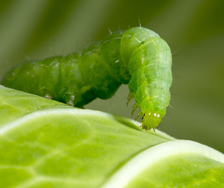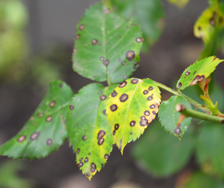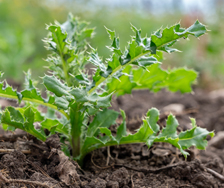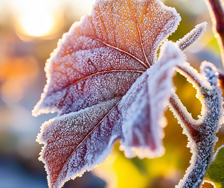Yates Account
Join now
Create a Yates account today!
Sign up to join the Yates Garden Club for monthly e-mails packed with seasonal inspiration, tips for success & exclusive promotions.
Plus if you’re a Garden Club member you can take part in the Yates Growing Community - a blog to share successes, get advice & win prizes in fun challenges along the way!

Forgot password
Enter the email address associated with your account, and we'll email you a new password.

It’s hard to think of a more important ingredient in kitchens around the world than onions. Along with shallots, their more sophisticated cousin, they add depth and flavor to countless dishes. Conveniently, they’re also quite easy to grow, making them a great choice for both beginner and experienced gardeners.
March to May is the perfect window to start sowing shallot seeds. For onions, you can continue sowing until June in warmer areas, although you can sow as late as August in cooler areas.
Here’s some reasons to love Onions and Shallots.
They're incredibly versatile to cook with. The spectrum of flavors ranges from sharp and pungent, umami or ‘sulphury’ to subtly sweet, and there are endless ways to use them in a meal. You can roast, grill or caramelize them, make a sofrito, or just slice or roughly chop them into a salad; they’re just as good served raw as cooked.
Onions are the ultimate building block to start off a dish – you might not be able to detect them in the finished result, but if you leave them out, it won’t taste as good!
Supermarket onions are usually brown onion varieties like the iconic ‘Pukekohe Long Keeper’, or more mild-tasting red onions. But there are plenty more onion varieties, each one suited to different culinary uses, with different climate preferences. This is where sowing your own gives you a lot more choice.

- Brown onions (known as yellow onions overseas) are by far the most popular choice in NZ. They’re usually used in cooked dishes due to their strong bite. The white flesh is firm, crisp and easy to slice.
- Red onions are usually sweeter and milder in taste, so they are most often used raw, to add crunch and piquant texture to a dish.
- White onions have papery skins and a (usually) pungent taste. This group includes cocktail, pearl and silverskin onions.
- Pickling onions are generally small-sized brown onions, with a sharp tang that makes them ideal for preserving.
- Yates 'Rossa Lunga' heirloom onions are an example of something a little different. An Old-World European favourite, they really bring something special to the table.
- Shallots are closely related to onions – they’re prized for their subtle, slightly sweet flavour and petite teardrop shaped bulbs. Yates Shallot ‘Ambition’ is an F1 hybrid that’s been painstakingly bred to be bolt resistant, a very reliable cropper and to store exceptionally well.
One of the best things about onions and shallots is their ability to store for months after harvest. When properly cured and stored, they can last through the winter, which probably explains why they’re such a ubiquitous cooking staple.
Growing Guides
March is the ideal time to start onion and shallot seeds. If you sow them early in autumn, you’ll give your plants a good head-start, for a maximum harvest. They’ll happily grow in garden beds, raised beds or containers.
If you have spare garden space, get some seeds, prepare your soil, and start sowing. You’ll be pleasantly surprised how easy it is to successfully grow onions or shallots!
FAQ - Should I grow Shallots from seed, or bulbs?
Comparing whether it’s best to grow shallots from sets (individual bulbs) or seed is complicated, because seed behaves differently to sets. Seed takes longer to grow, but it’s less prone to bolting than bulbs. Each seed produces one set (bulb) in the first season, whereas each set you plant yields multiple sets at harvest time.
‘Bulbils’ can also confuse the issue a bit: these are the tiny bulbs that form on shallot flowers, at the top of the stem. Bulbils can be successfully planted just like a set and they’re cheaper to buy. However, bulbils don’t produce full-size sets the first year, so they’re a longer-term strategy.
Growing shallots from seed still offers very good value against buying sets, for patient gardeners. Buying shallot sets individually adds up quickly, but the payoff is at the end of the first season. Growing from seed, the payoff comes in the second season; because the yield is potentially a lot bigger than if you started with sets. After that, you’ll be able to keep sets aside from your harvest to plant out the following year…and keep increasing the size of your crop for many years.



















Share
Share this article on social media